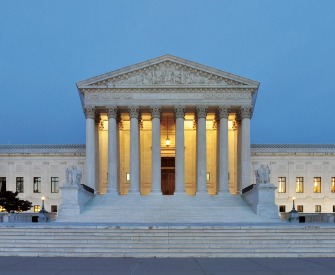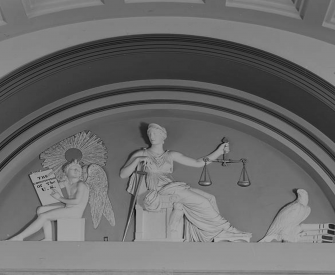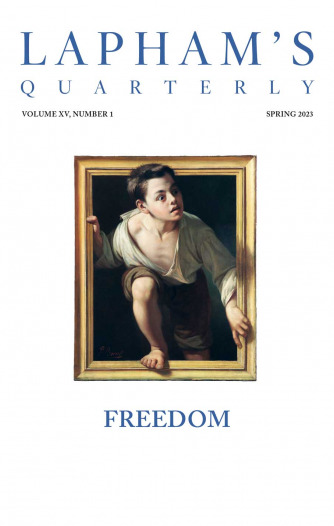Everybody says it; and what everybody says must be true.
—James Fenimore Cooper, 1844Free the Press
“Let in the light!” says W.T. Stead.
If the state desires to encourage divorce, by all means, let all divorce cases be heard in camera. If on the other hand the true policy is to discourage divorce, there should be no interference with the liberty of the press to report, at its discretion, the proceedings of the divorce court.
Whatever evils result from the publication of filthy evidence, they are as dust in the balance compared with the evils which would result from any attempt to restrict, by law, the reporting of the proceedings of the court. As an old journalist—I have been editing papers and magazines for forty years—I give it as my deliberate judgment that far more harm has been done to public morals by suppressing unpleasant news than by printing it. I am a Puritan and am proud to bear the name. I have worked all my life against vendors of obscene books, pictures, and prints; but the deadliest enemies of public morality are those who persistently ignore the existence of vice, who suppress the evidence as to its prevalence, and who prefer that innocent victims should go down into the pit in silence rather than that their refined ears should be shocked by even so much as one despairing cry.
We are face-to-face with the fact that the church has practically ceased to exist as a living force in combating the corruption of morals. Her old weapons, excommunication, refusal of the Sacrament, denunciation from the altar, and in more recent days the cutty stool and the scarlet letter, have rusted from disuse. The simple faith of our forefathers in the all-seeing eye of God has departed from the man in the street. Our only modern substitute for him is the press. Gag the press under whatever glossing pretexts of prudish propriety you please, and you destroy the last remaining pillory by which it is still possible to impose some restraint upon the lawless lust of man.
Let in the light! A good arc lamp does more for morality than two policemen. The eye of man is still a potent deterrent to those who love the darkness rather than the light, because their deeds are evil. The divorce court is the modern substitute for the Day of Judgment, not because of the decrees which it pronounces but because of the publicity which it secures. Close its doors, curtail the possible fullness of its reports, and you will give a far more enormous impetus to the corruption of morals than results from the combined efforts of all the proprietors, editors, and reporters of the News of the World, the Umpire, the Globe, and their fellows.
I have no objection to the prosecution before a jury of any book, magazine, or newspaper which publishes obscenity, even in a privileged law report, unless it can be proved that without such obscenity the case could not be intelligibly reported. But instances of downright obscenity in law reports are very rare. Even the News of the World is said to have somewhat bowdlerized its reports, and obscene reporting in the daily press is practically unknown. Even if it were more frequent, it would be better to run the risk of such occasional outrages than to gag and fetter the press of the whole country.
I have always found that it is the man who does a woman cruel wrong who dreads publicity for himself, and whenever I have had a chance, I have pillorized them as pests of society.
Let no one think that because I insist upon the use of publicity, I would not do my uttermost to prevent its abuses. But no mistake is more common than to assume that unless you can use the policeman and the jail, you can do nothing. To repress crime by the pains and penalties of the law is necessary. To use the same weapons for dealing with ordinary vice usually aggravates the evil. The force of public opinion could be brought to bear, and ought to be brought to bear, upon those evildoers who, in order to earn a dirty penny, rake the sewers of our courts in order to minister to the salacious appetite of their Sunday public. If, for instance, a man were proved to be guilty of such an offense and was treated as if he were caught cheating at cards, the evil would soon be abated. Titles of honor might be forfeited by newspaper proprietors who publish such papers. The purveyor of filth should not be received at court or elected to any office of public trust. The boycott applied by advertisers is a potent weapon, and if the church still aspires to be a director of the moral forces of the nation, what an opportunity is afforded it of rallying the conscience of the community to cleanse the journalism of the land from the mercenary vendors of putrid garbage. But since Cardinal Manning died, I have never met a bishop or parson who ever seemed to think that even editors had souls.

W.T. Stead
From testimony before the Royal Commission on Divorce and Matrimonial Causes. As editor of the Northern Echo, from 1871, and the Pall Mall Gazette, from 1883, Stead was a pioneer of “government by journalism,” employing sensationalistic headlines to sway public policy and enact moral reforms. His 1885 series of articles exposing child prostitution led to the so-called Stead Act, which raised the age of consent in the UK from thirteen to sixteen. Less than two years after providing this testimony, Stead was invited to deliver a lecture on world peace in New York City and booked passage on the Titanic. He was last seen assisting women and children into lifeboats.


